Home | Front Page | Index | Blog | New | Contact | Site Map
Winter
Nazi Terror
Churches
Museums
Prussian palaces
Alte Stadt
Modern Architecture
Shopping
Quirks
Bei Uns (At Home)
Guests
Maps
Pics
Foto Show

Travel 2005
Berlin
Paris
Moscow
Russia
Athens
Travel 2004
Mexico 2004
Belize
Guatemala
Honduras
Costa Rica
Panama
Colombia
Ecuador
We're at a loss to know how to title this section or even organize it. How do you convery what a city is? What it is today, not what it was? For lack of a better word, we've lumped it under "shopping". But we really mean, "this is the way the city works, this is what you find everyday people doing everyday."
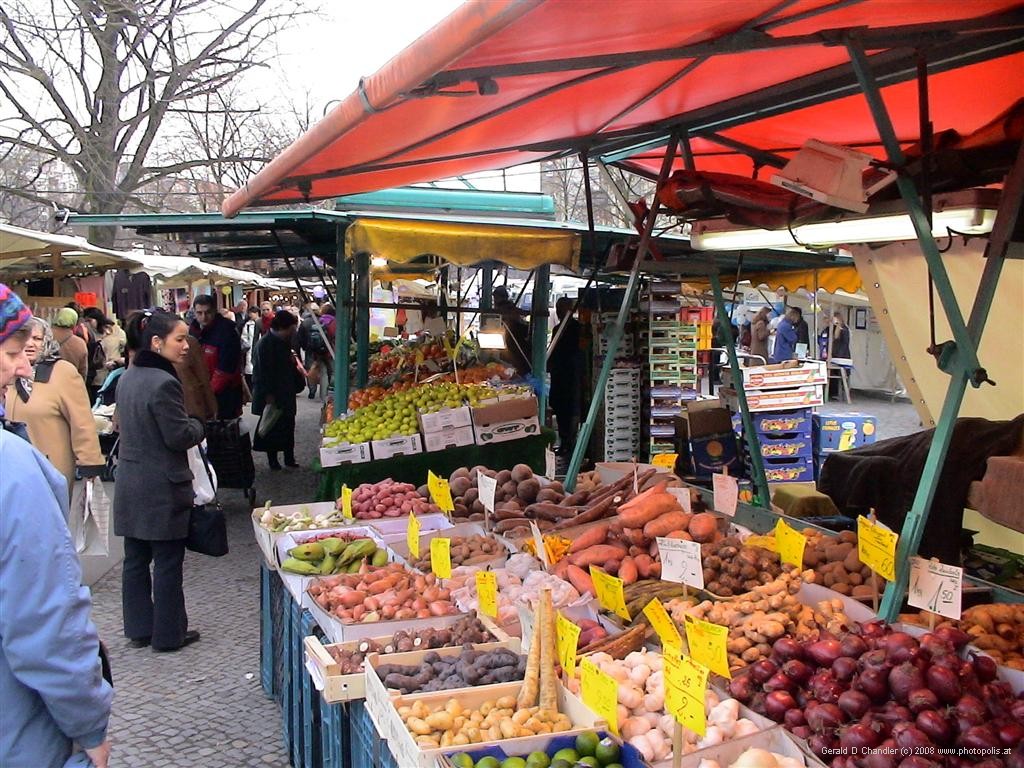
Kreuzberg Turkish Market |
Kreuzberg is one of the dozen or so administrative districts of the Berlin Muncipality. It is now nearly at the heart of Berlin but when there was an East and West Berlin it lay along the Wall and, as such, was a bit of a back water. Consequently housing prices were low and it became heavily Turkish. Now, fifteen years after the fall of the Wall things have hardly changed. Twice a week, at two different locations, there are open air Turkish markets. We went out one day to see what there was and, hardly surprising, came home with a few delacies we didn't find at the Aldi.
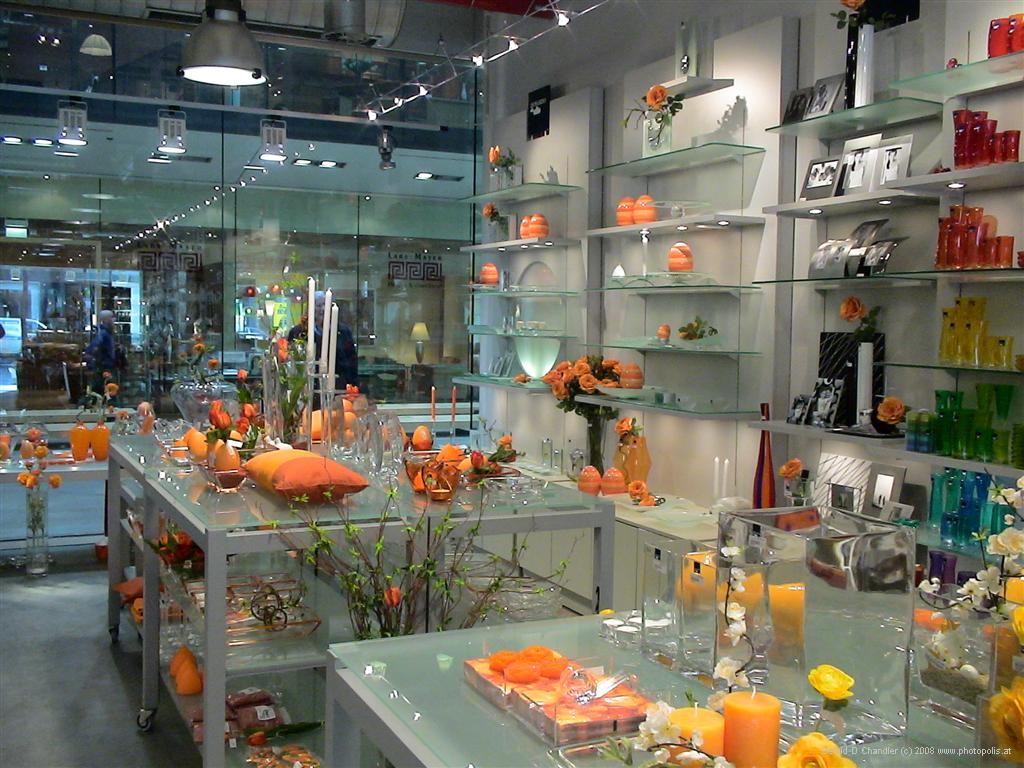
Tony Furnishings, near Ku'damm |
Modern Berlin has plenty of things for those whose pocket book is well filled. Hardly surprising since even much poorer cities, or at least those who have large in fluxes of tourists or a reasonable sized corrupt body politic, also offer plenty of luxury goods. This store is in a modern, very modern, glass shopping center near the Ku'damm. Lonely Planet pointed it out as one of the more advant garde places so we took a peek. Here Gerry ran into some more photo phobia: upon seeing his camera the sales girl came rushing at him. When her back was turned he took this telephoto picture.
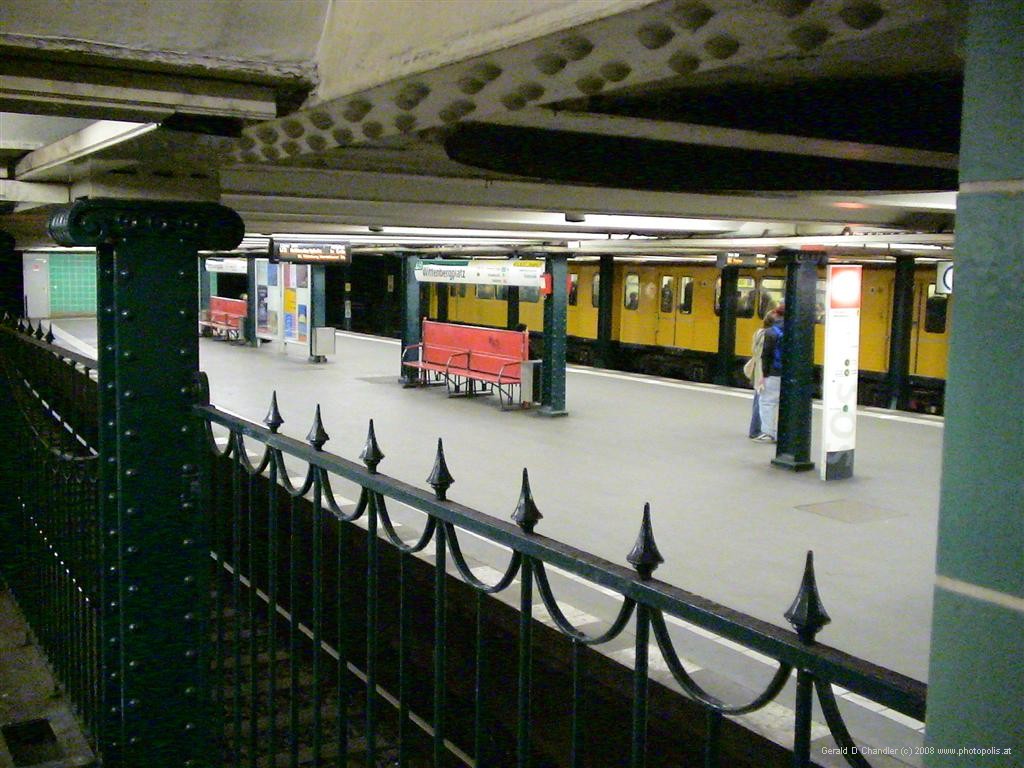
U-Bahn Station |
This page was meant to be about "life" and life goes beyond shopping. Or, at the very least, to shop, one must travel. In our first three weeks in Berlin we travelled exclusively on foot. Everything we saw was within a few kilometers of our apartment. When there were 30 days left before departing for Paris we bought a 30-day "monthly pass". In fact, to our disappointment, it wasn't a 30-day pass at all: it went from a calendar date to the same date minus one in the next month so ours were from February 22 to March 21 and we only got 28 days use out of them.
For 65 euros each we got unlimited rides on the bus, U-Bahn, and S-Bahn in zones A, B, and C. The zones covered all of municipal Berlin and a bit beyond, including to Potsdam. We got quite adept at riding the system and for the most part it was pleasant when we went: in other words, we were rarely out at rush hour and usually got a seat. The closest public transport to us was two blocks away at the Landwehr canal. Above ground was an S-Bahn line and below ground was a U-Bahn line. (Near the station there is a bridge that crosses the canal. As with so many things in Berlin there are two dates: that of the original construction around 1850 and that of post-war reconstruction, about 1950.) Many a day we started our explorations by traveling on one of them. Coming home we initially would take a bus and walk the four large blocks from the nearest stop. After we got well familiar with that we switched to taking the trains unless we wanted to get off the bus to shop at an Aldi or similar market.
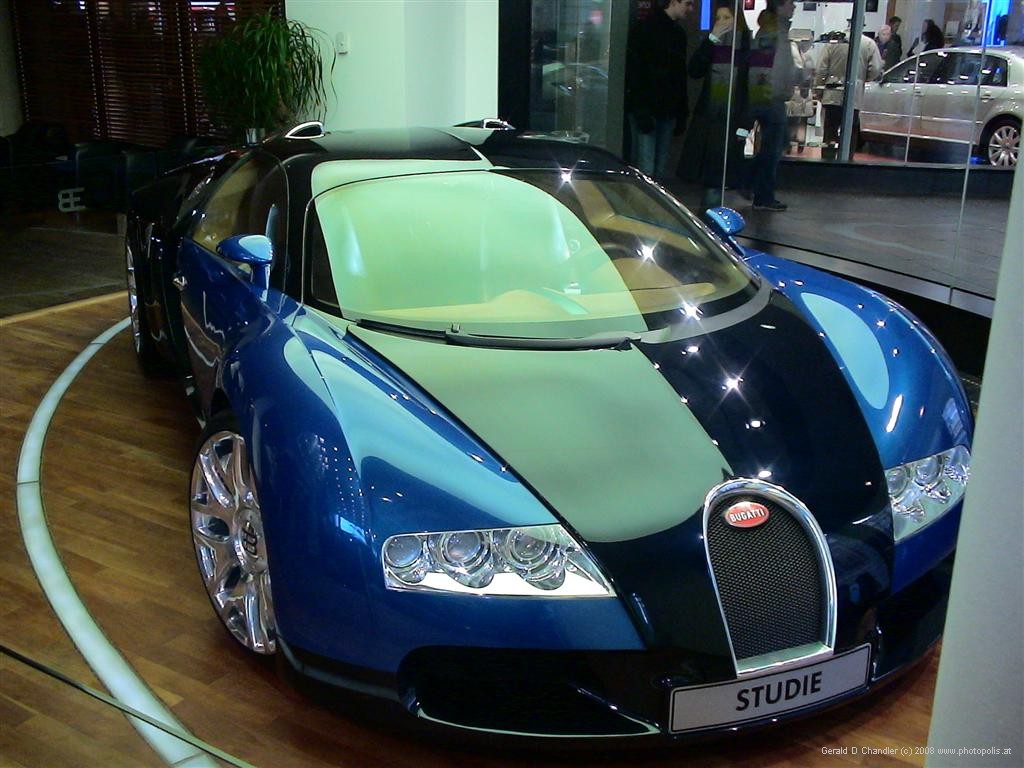
Bugatti Boy Toy — $150,000 |
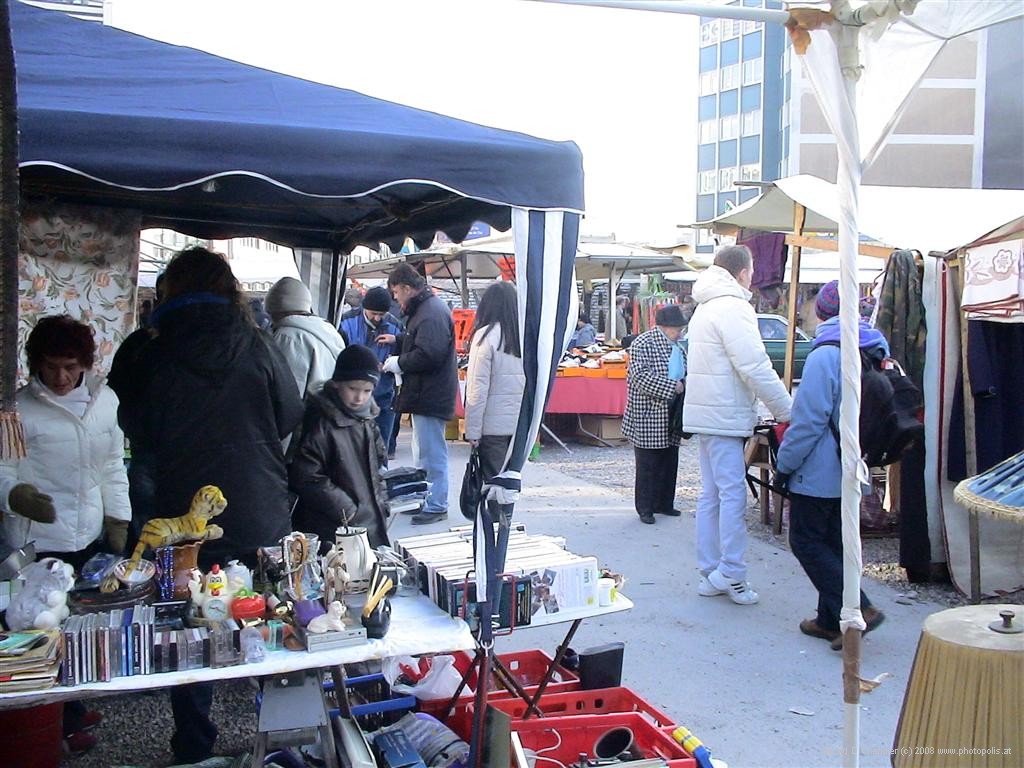
Kreuzberg Flea Market |
We came home with a radio that cost us five euros and that we carried with us to Paris and only abandoned there because we were already overweight for the plane to Teesside. [We wished we had had it in Moscow but instead we bought ourselves a fancy short-wave multi-function radio, clock, alarm for considerably more money.] We should have bought bikes and a TV that we saw there but at that point we were undecided.
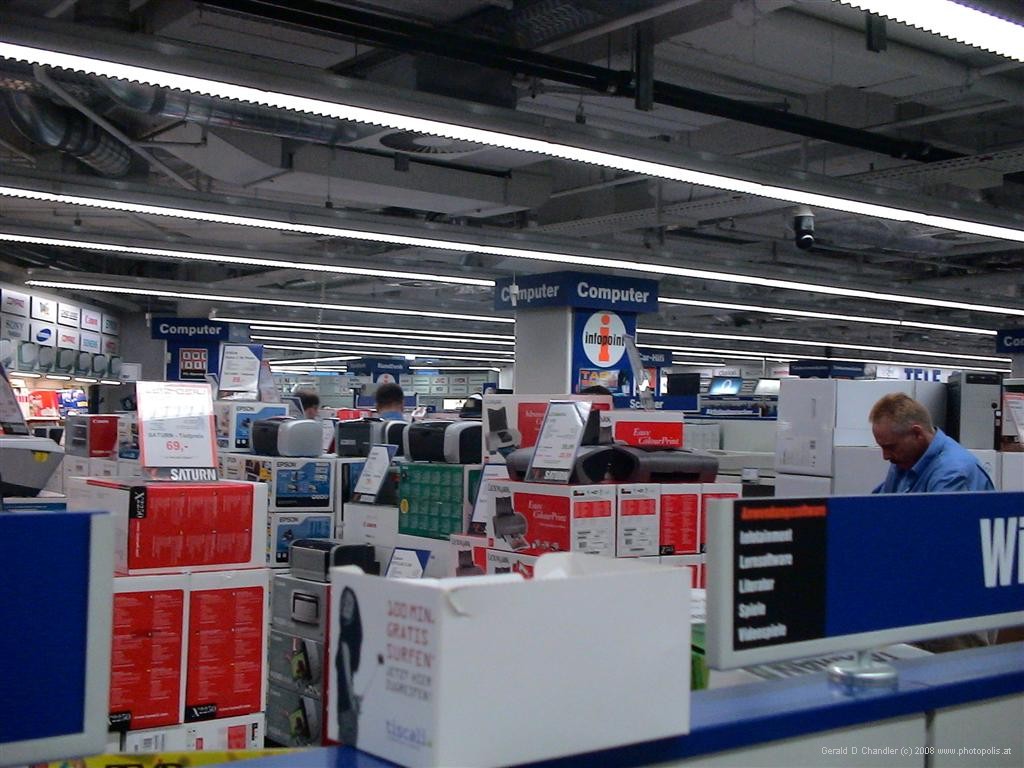
Saturn Electronics, Potsdamer Platz |
If there is any product that is the epitomy of globalization it is electronics. Roughly speaking the same products are found around the world and, more roughly, at the same prices. Almost always the USA's are the lowest; so much lower that for a laptop or something over $1500 or even $1000 the savings can pay for the airfare.
Saturn is a chain with some dozens or even hundreds of branches in Germany and we found at least two of them in Berlin. As noted elsewhere we were in the market for a TV and they had pretty good deals. But in the end being uncertain that there was any kind of program feed we could hook up to, we didn't buy one. Gerry did buy some DV Tapes and they were among the best prices we've found on the five continents.
Our absolute best find however was some audio CDs. One day Gerry saw advertised Thomas M's "The Assassins" (7 CD's) and Ken Follet's "The Pillars of the Earth" (12 CD's), both in German, at very good prices. We first went to the Saturn pictured and when they said they were out of stock went to the Alexander Platz store and were very happy to find them. Not only did we have many hours of interesting listening to them, but they started a trend. They made Jan realize that the neat Creative Zen MP3 player she had bought herself in New York could be used for speech as well as music. When we got to Paris, Gerry visited the local library and borrowed audio CD's that we listened to on our computers or MP3 player. And finally, the piece de resistance, Jan later bought several CD books in Russian that she listens to regularly trying to improve her listening comprehension. What a great language learning tool!
Brockhaus Encyclopedia and Le Petit Robert
While in Berlin — at Saturn, in fact — we were tempted by the Brockhaus DVD-based computer encyclopedia. Only after we left Germany. and were in Paris did we make up our mind to buy it. Fortunately our German friend Dirk kindly solved the problem by bringing it with him when he visited us in Paris. Altogether, we now own five computer encyclopeidas. We own the DVD versions of both Encarta and Britannica in English, Encarta in Espanol, the Brockhaus in German, and the Larousse in French. Only the latter has proved disappointing in both the depth of its coverage and the poor response time. Britannica is also somewhat slow but more than compensates by its terrific coverage of pre-1980's history. Encarta is the fastest, also the most up-to-date, and has the best atlas software.
While in France we also bought a copy of the Petit Robert French-French dictionary which is most helpful for reading downloaded copies of Le Monde. If anyone out there knows of a really first-class Russian-English or just plain Russian computer dictionary, please let Jan know. She carries a small Oxford Russian dictionary but it is becoming inadequate for the stuff she is reading.